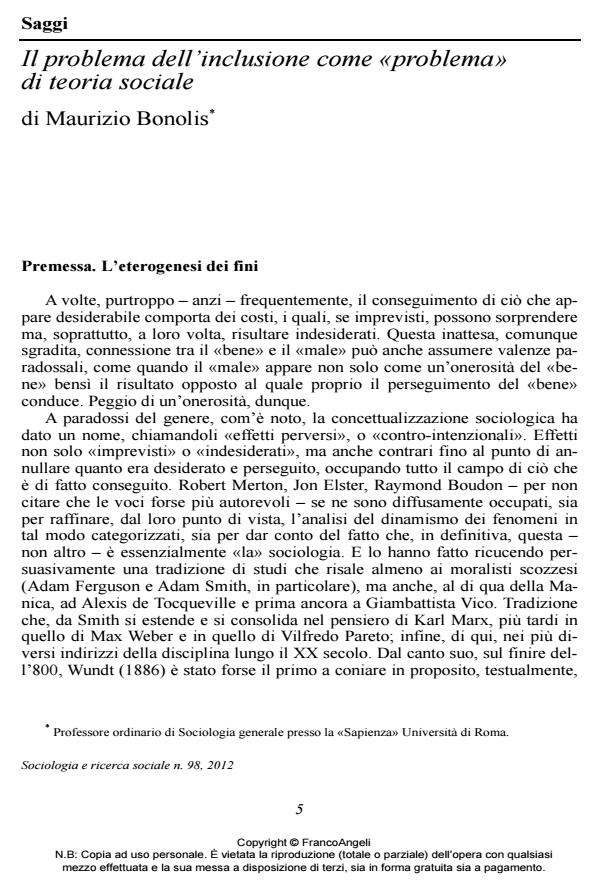The Problem of Inclusion as a "Problem" of Social Theory
Journal title SOCIOLOGIA E RICERCA SOCIALE
Author/s Maurizio Bonolis
Publishing Year 2012 Issue 2012/98
Language Italian Pages 23 P. 5-27 File size 262 KB
DOI 10.3280/SR2012-098001
DOI is like a bar code for intellectual property: to have more infomation
click here
Below, you can see the article first page
If you want to buy this article in PDF format, you can do it, following the instructions to buy download credits

FrancoAngeli is member of Publishers International Linking Association, Inc (PILA), a not-for-profit association which run the CrossRef service enabling links to and from online scholarly content.
The theme of social inclusion can not be address in sociology without initially considering the definition of the concept of citizenship as formulated by Alfred Marshall. Given this introduction, duly argued philologically, Ralph Dahrendorf’s contribution is considered. The latter makes Marshall’s definition operational in terms of «subjective rights». Four categories of request for inclusion are thereby identified. Two are endogenous: a) through loss of inclusion; b) through risk of exclusion. Two are exogenous: c) through migration dynamics; d) through cultural change. These four types are considered in light of the work of Amartya Sen and Lawrence Friedman, with particular consequentialist attention (in the sense of Weber’s «ethics of responsibility») to the repercussions that inclusion programs determine within institutional and noninstitutional areas of reference. The article’s layout is also inspired by the principle of Weber’s «technical critique of values». The question is: which sociocultural «costs» involve specific and different social policies of «inclusion»?
Maurizio Bonolis, Il problema dell’inclusione come "problema" di teoria sociale in "SOCIOLOGIA E RICERCA SOCIALE " 98/2012, pp 5-27, DOI: 10.3280/SR2012-098001